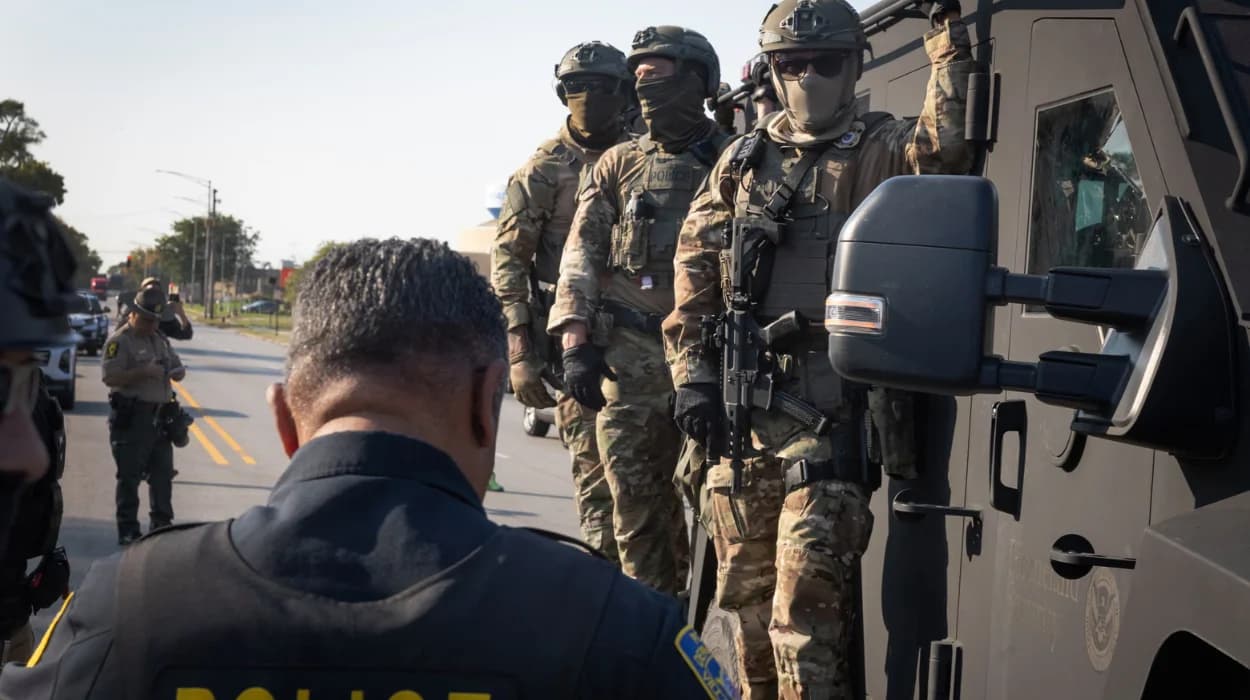Summary
- Over 1,000 CDC employees received layoffs notice Friday.
- Notices included entire offices, including health statistics units.
- The move was part of broader government workforce cuts.
During an Immigration and Customs Enforcement (Ice) operation in the Lincoln Square neighborhood of Chicago on Friday, federal officials detained Debbie Brockman, a US citizen and employee of WGN. Videos from the scene show two agents pushing Brockman to the ground before handcuffing and loading her into a van.
According to a homeland security official at the time, Brockman was "placed under arrest for assault on a federal law enforcement officer" after allegedly "throwing objects at the border patrol's car."
WGN confirmed later on Friday that Brockman was free of federal custody and that she was not facing any charges.
Brockman's lawyers refuted the government's story in a press release they sent to the Guardian and many Chicago news outlets on Tuesday. They stated that Brockman was the one who was brutally attacked by federal agents on her way to work on October 10 and that they "adamantly deny any allegation that she assaulted anyone."
According to her attorneys, Brockman was "walking to the bus stop as part of her morning commute when she was attacked by Border Patrol agents," and she was "not acting in any professional capacity as an employee for WGN" at the time of the arrest.
“Brockman, who is a US Citizen born in this country, was violently detained on Foster Avenue”
the statement continues.
“As this occurred, individuals on the street began recording the incident and asked Ms. Brockman her name.”
The statement says that she told the bystanders her name and that she worked at WGN, in the hopes that “someone would notify her employer so coworkers would know that she would not be arriving at work that day” her attorneys said.
According to her lawyers, Brockman was held in federal custody for about seven hours before being released.
“She has not been charged with any crimes and she intends to pursue all legal avenues available to her to vindicate her rights and hold the federal authorities accountable for their actions,”
the statement adds.
Brad Thomson, one of her attorney’s, added in the statement:
“If armed, masked, federal agents are snatching US citizens off the street as they walk to work and throwing them in unmarked vehicles, you can only imagine what these agents must be willing to do to our immigrant neighbors and people who dare to speak out against them.
Ms Brockman was taken to the ground, battered, handcuffed, and her pants were pulled down exposing her bare buttocks,” Thomson said. “No one should be treated like that in this city, in this country or anywhere else in the world.”
Requests for comment from Ice, the US customs and border protection department, and the Department of Homeland Security were not immediately answered.
What legal protections exist for journalists in protests?
Journalists have the right to access and report on events in public spaces, including demonstrations and protests, protected under freedom of the press and freedom of speech laws like the First Amendment in the U.S. Public places such as sidewalks and parks are accessible, though private property or secured government facilities may have restrictions.
Police can only arrest journalists with probable cause, such as failure to comply with lawful orders (e.g., dispersal orders) or engaging in disorderly conduct. Simply recording or reporting on protests is not grounds for arrest.
Journalists are legally allowed to record video and audio of public events, including law enforcement activities, as long as they do not obstruct police operations.

